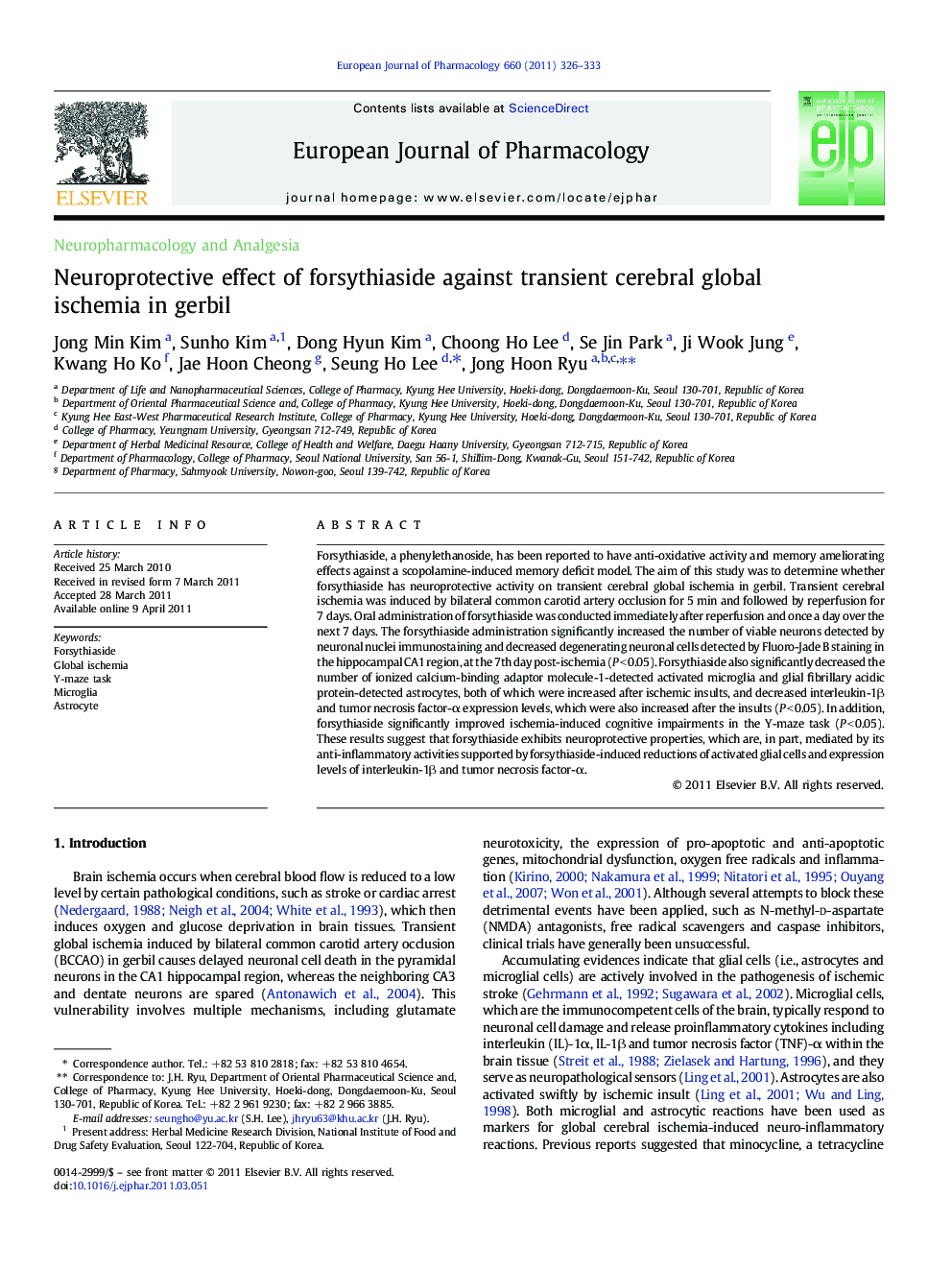| Article ID | Journal | Published Year | Pages | File Type |
|---|---|---|---|---|
| 5830303 | European Journal of Pharmacology | 2011 | 8 Pages |
Abstract
Forsythiaside, a phenylethanoside, has been reported to have anti-oxidative activity and memory ameliorating effects against a scopolamine-induced memory deficit model. The aim of this study was to determine whether forsythiaside has neuroprotective activity on transient cerebral global ischemia in gerbil. Transient cerebral ischemia was induced by bilateral common carotid artery occlusion for 5 min and followed by reperfusion for 7 days. Oral administration of forsythiaside was conducted immediately after reperfusion and once a day over the next 7 days. The forsythiaside administration significantly increased the number of viable neurons detected by neuronal nuclei immunostaining and decreased degenerating neuronal cells detected by Fluoro-Jade B staining in the hippocampal CA1 region, at the 7th day post-ischemia (P < 0.05). Forsythiaside also significantly decreased the number of ionized calcium-binding adaptor molecule-1-detected activated microglia and glial fibrillary acidic protein-detected astrocytes, both of which were increased after ischemic insults, and decreased interleukin-1β and tumor necrosis factor-α expression levels, which were also increased after the insults (P < 0.05). In addition, forsythiaside significantly improved ischemia-induced cognitive impairments in the Y-maze task (P < 0.05). These results suggest that forsythiaside exhibits neuroprotective properties, which are, in part, mediated by its anti-inflammatory activities supported by forsythiaside-induced reductions of activated glial cells and expression levels of interleukin-1β and tumor necrosis factor-α.
Related Topics
Life Sciences
Neuroscience
Cellular and Molecular Neuroscience
Authors
Jong Min Kim, Sunho Kim, Dong Hyun Kim, Choong Ho Lee, Se Jin Park, Ji Wook Jung, Kwang Ho Ko, Jae Hoon Cheong, Seung Ho Lee, Jong Hoon Ryu,
